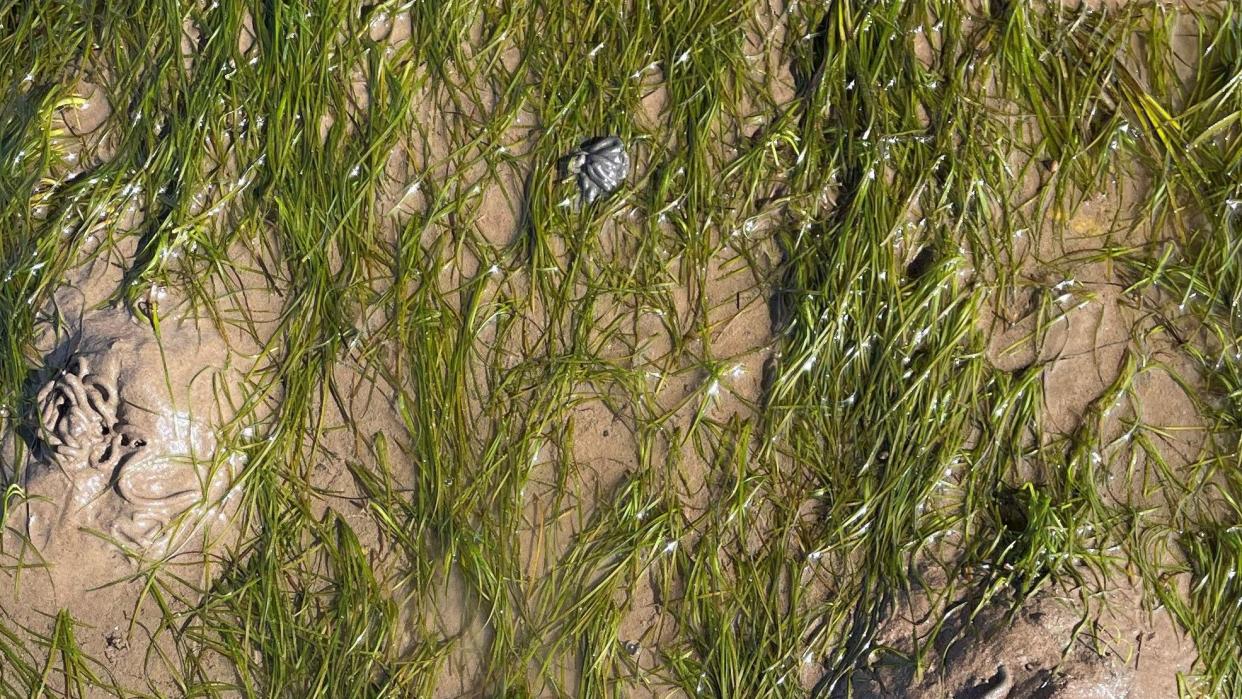Seagrass planted to tackle global warming

Coastal seagrass beds are being revived as part of a global effort to tackle climate change.
Cumbria Wildlife Trust is restoring a vast seagrass meadow near Barrow, in south Cumbria, at a cost of £141,000 - including partial funding from the Environment Agency.
According to the United Nations, seagrass helps mitigate global warming, thanks to its ability to lock away carbon.
Adam Rounce, from the wildlife trust, said seagrass beds were often "overlooked" because they resemble a submerged garden lawn.
“That’s why it’s such an overlooked habitat - because it doesn’t have any charisma at all," he explained.
Mr Rounce has tracked how much Dwarf Eelgrass - a species of seagrass found in the shallow coastal waters - has been lost each year.
Morecambe Bay has lost 70% of of its seagrass beds over the past century, according to trust figures.
The trust said seagrass beds may be responsible for up to 18% of the total carbon storage in the ocean, despite only covering 0.1% of the global ocean floor.
'Superpower plant'
Seagrass will be replanted in the Walney Channel, off Barrow, where the trust believes restoration is most likely to succeed.
Trust marine conservation officer Amber Gould said the plant provided shelter for some juvenile fish species, while other creatures could live in the surrounding sediment.
"It also helps with climate change because it removes carbon from the atmosphere," she said.
"So, for different reasons, it’s a bit of a superpower plant that we’ve got growing on our coastline."
Follow BBC Cumbria on X (formerly Twitter), Facebook and Instagram. Send your story ideas to northeastandcumbria@bbc.co.uk.

